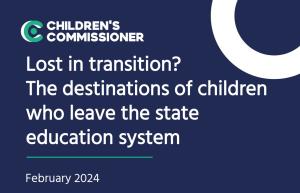Children in England regularly highlight the importance of stress associated with school and education. In our consultation with children for our 2020/21 business plan, the children we spoke to told us that less pressure in school and fewer tests and exams would represent the single biggest improvement to their lives. International comparisons also suggest that while the UK’s academic performance is on a par with other developed countries, levels of pupil wellbeing and satisfaction are notably lower in the UK, ranking 63rd of 69 countries included in the 2018 PISA results1. Only 18% of pupils in the UK were deemed to have positive wellbeing according to PISA’s index, which accounts for life satisfaction, feelings of isolation at school and propensity to doubt plans when failing. This compares to an average of 32% amongst all OECD countries.
These worryingly low levels of children’s wellbeing in school are compounded by a school system showing severe signs of pressure, with many children struggling to access and sustain high quality education. This is evidenced by rising exclusion rates over the last five years (up 60% on 2013/14), repeated concerns around the practice of off-rolling, and the increasingly stubborn gap in attainment between disadvantaged children and their peers.
To attempt to highlight some of these issues in greater depth, this report presents an overview of findings from two strands of research:
- Focus groups with children exploring the pressures they experience at school, and how they feel their experience of school could be improved.
- Quantitative research exploring the feasibility of creating a new ‘good schools index’ for secondary schools in England, based on a range of different measures. This is to see if it is possible to produce a more rounded measure of school quality that goes beyond existing headline attainment measures, and gets closer to the measuring the wellbeing and experiences of pupils. These findings are the result of initial analysis conducted by FFT Education DataLab.
It is important to state that this work was carried out before the COVID-19 pandemic. However, it is likely that these concerns will not have disappeared during COVID-19 and in some cases will likely have been exacerbated, particularly with pupils facing significant stress around exams next year and lost preparation time as well as lack of contact with friends.3 There have been repeated concerns on the detrimental impact on children’s mental health of this lockdown, as evidenced by the large rise in the prevalence of children with a probable mental health disorder4.
These findings are exploratory and intended to present avenues for further exploration by central government, researchers or the education sector, particularly around how children’s school experience can be improved and how schools’ inclusivity might be measured in future.





